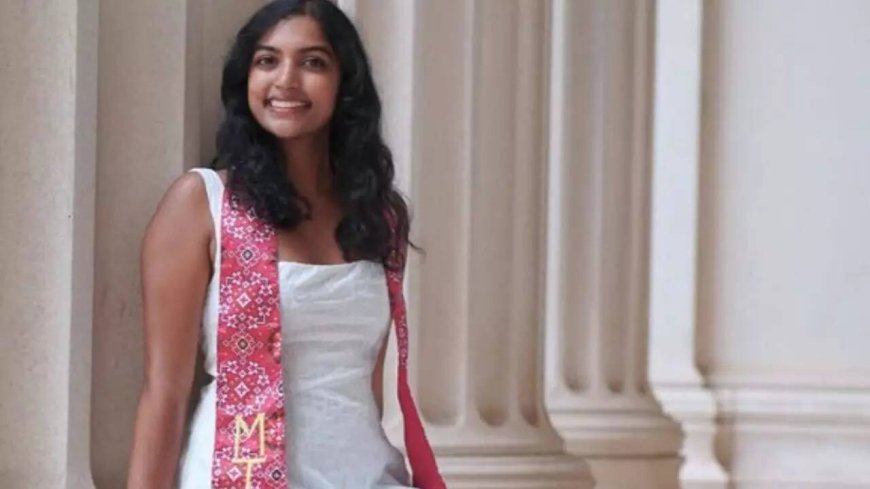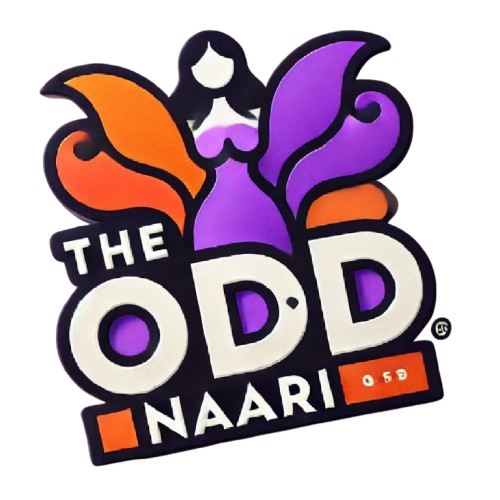'Overreach': Indian-origin Megha Vemuri reacts to MIT's ban on her from commencement event for pro-Palestine speech

'Overreach': Indian-origin Megha Vemuri reacts to MIT's ban on commencement event for pro-Palestine speech
Breaking News, Daily Updates & Exclusive Stories - theoddnaari
In a significant turn of events, Indian-origin Megha Vemuri has publicly expressed her discontent following a controversial ban from participating in the commencement event at the Massachusetts Institute of Technology (MIT). This decision comes after Vemuri had planned to deliver a speech advocating for Palestine, sparking debates on academic freedom and the boundaries of political discourse on campuses.
Background of the Incident
The controversy erupted when MIT's administration informed Megha Vemuri, a recent graduate, that she would not be permitted to speak at the upcoming graduation ceremony. The university cited the "political nature" of her intended remarks as the reason for this ban. Vemuri, who has been an outspoken advocate for Palestinian rights, described the decision as an "overreach" of MIT's authority and a suppression of free speech.
"I believe it's crucial to address pressing global issues, and Palestine is one of them. The ban feels like an attempt to silence voices that challenge the status quo," Vemuri stated during a recent interview. Her perspective highlights the ongoing debate over freedom of expression versus institutional policies in educational settings, which often walk a fine line between maintaining neutrality and allowing diverse opinions to flourish.
Megha Vemuri's Reaction and Broader Implications
Megha's reaction has spurred a wave of discussions both within and outside the MIT community. Many fellow students and advocates for human rights rallied around her, voicing concerns that the ban might set a troubling precedent for other universities. They argue that educational institutions should provide platforms for all viewpoints, irrespective of their political implications.
In response to the administration's stance, Vemuri remarked, "It's alarming when educational bodies decide what is appropriate discourse. It undermines the essence of education, which is to foster open dialogue." This incident raises essential questions about the role of universities in political discourse and the extent to which they should interfere with their students’ expressions.
The Role of Academic Institutions
This incident also highlights the broader issue of how academic institutions manage politically sensitive topics. Institutions like MIT, renowned for their commitment to innovation and critical thinking, face challenges in balancing their educational mission with the diverse viewpoints of their student bodies. The question remains whether universities should act as gatekeepers or facilitators of free discussion.
As debates continue, many students are advocating for more transparent and inclusive policies regarding speech and expression on campuses. Several educational experts argue that administrations need to find a middle ground that respects both academic freedom and the diverse makeup of their communities.
Conclusion
The ban on Megha Vemuri from MIT’s commencement event not only highlights her personal struggle but also sparks a vital conversation about the dynamics of free speech in academic settings. As institutions navigate the complex landscape of political expression, they must consider the implications of their policies on student voices. As Megha Vemuri prepares to take her fight beyond MIT's walls, the outcome of this incident could reshuffle the discussions surrounding free speech in higher education.
For more updates, visit theoddnaari.







